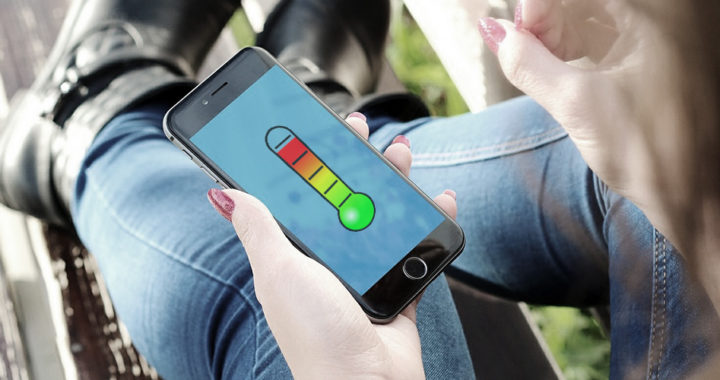Heat is a natural byproduct of electronic devices such as laptops and smartphones under operation. However, in certain situations, these devices may generate and sustain high levels of heat that can result in overheating and inoperability due to damages in their specific electronic components. This article lists down and discusses the major causes of overheating in an electronic device.
Explainer: What Causes Overheating? Why Electronic Devices and Electronic Components Overheat?
1. Physical Dimension Becoming Smaller
Researchers of B. Liao, A. A. Maznev, K. A. Nelson, and G. Chen noted that consumer electronic devices such as portable laptops and smartphones are becoming more prone to overheating because they are becoming smaller. They explained that the physical dimension plays a role in the capacity of an electronic device to manage and expel internally generated heat.
The researchers explained further that as demand for smaller devices becomes higher and more taxing, manufacturers of electronic components need to pack transistors into even small areas. The cluttered area increases susceptibility due to reduced thermal flow.
N. Korotkov, M. R. Samuelsen, and S. A. Vasenco recommended that transistors and other electronic components need to have a larger area and thicker physical dimension to increase thermal flow and reduce thermal boundary resistance. Note that failure to meet the required dimensional characteristics of electronic components and electronic devices is indicative of design and engineering problems.
2. Faulty Contact Wiring and Multi-physics Coupling
Other design-related causes of overheating in electronic devices such as laptops and smartphones or of their electronic components are faulty contact wiring and multi-physics coupling. W. B. Yang, S. J. Mo, D. Lianga, and F. J. Zhen said that faulty wiring and contact wiring can generate undesired excessive heat levels and may cause sparks that can further lead to fire. Bad contact and bad wiring that can lead to excessive voltage surges and power dissipation.
Researchers E. M. Dede and professors J. Lee, and T. Nomura also explained that those multi-physics coupling considerations are inherently problematic, especially those that take into account the electric and temperature fields in the design of electronic components.
Note that multi-physics coupling is a conventional engineering consideration in the design of miniaturized electronic component and production of compact form-factors. This consideration increases the risks for internal problems of electronic components because high power devices using miniaturized electronic components leads to higher power density.
3. Specific Causes of Overheating in Capacitors
The article written and published by professional magazine EE Publishers explained the different causes of overheating in capacitors. For instance, power dissipation induces heating in capacitors. However, excessive power dissipation results in the rise of temperature that can go beyond the capacity of transistors resulting in capacitor failure.
Leakage current is another specific cause. A higher leakage current generates higher temperature across the capacitor due to loss of power. The article noted that aging generally causes higher leakage current because the oxide layer used in a capacitor dissolves over time. Surge voltages can also increase the internal temperature within a capacitor that can further lead to overheating.
4. External and Environmental Factors
Factors or unfavorable conditions around the environment of an electronic device serve as external and environmental causes of overheating. The reference book on systems failure analysis authored by J. Berk listed down and explained these causes.
Fluctuating weather conditions or induced differences in ambient temperature can wear and tear to electronic components. This is because temperature cycling can induce cracks over time as materials within a component expands and shrinks. An example of induced temperature cycling is constantly transporting an electronic device between two places with two different temperatures. This includes using a smartphone or laptop outside where temperature is warm and placing it inside an air-conditioned room.
Humidity or the high moisture content in the surrounding air can also result in overheating because water vapor can contaminate electronic components and erode metal components or cause a short circuit. Elevated temperatures due to humidity can promote internal overheating as well. Using a computer or a laptop in a hot environment will make internal heat distribution less efficient.
5. Human-Induced Factors of Overheating
Improper use of laptops and smartphones or other electronic devices such as using an incompatible auxiliary device as exemplified in using unrated cables and power adapters, overclocking of hardware components of computer devices, improper storage, and misuse and abuse, among others are some of the examples of direct human-induced causes of overheating.
FURTHER READINGS AND REFERENCES
- Berk, J. 2009. Systems Failure Analysis. Ohio: ASM International. ISBN: 978-1-61503-012-5
- Dede, E. M., Lee, J. & Nomura, T. 2014. Multiphysics Simulation: Electrochemical System Applications and Optimization. London: Springer London. DOI: 10.1007/978-1-4471-5640-6
- EE Publishers. 2014. “Thermal Stress on Capacitors: Failure Prevention.” EE Publishers. Available online
- Korotkov, A. N., Samuelsen, M. R., and Vasenco, S. A. 1994. “Effects of Overheating in a Single-Electron Transistor.” Journal of Applied Physics. 76(6). DOI: 10.1063/1.357424
- Liao, B., Maznev, A. A., Nelson, K. A., and Chen, G. 2016. “Photo-Excited Charge Carriers Suppress Sub-terahertz Phonon Mode in Silicon at Room Temperature.” Nature Communications. 7(13174). DOI: 10.1038/ncomms13174
- Yang, W. Mo, B., Lianga, S. J. and Zhen, F. J. 2014. Numerical Study of Overheat Fault in Copper Wire Caused by Bad Contact Base on Multi-Physics coupling. Paper presented at the 7th International Conference on Intelligent Computation Technology and Automation, Changsha, China. DOI: 10.1109/ICICTA.2014.103
